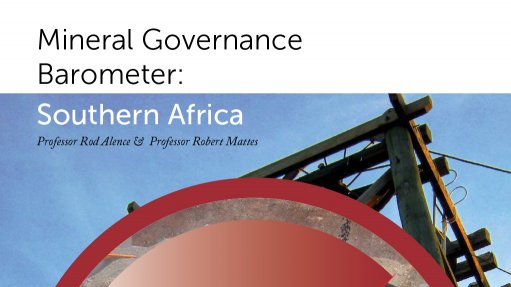
Southern Africa is endowed with lucrative mineral resources such as diamonds, gold, copper, coal, platinum, and uranium. This rich endowment can be a major asset in the quest for inclusive and sustainable development, yet mining in Southern Africa has often been criticised as an enclave sector that at best contributes little to economic development and at worst does substantial social and environmental harm. To avoid such pitfalls emerging international consensus emphasises the importance of good mineral governance. This involves the adoption and implementation of regulatory frameworks that promote deeper linkages between the mining sector and the broader economy, and that protect people and the environment from the potentially harmful consequences of mineral extraction.
This pilot study provides a barometer of mineral governance in ten Southern African countries: Botswana, Democratic Republic of the Congo (DRC), Lesotho, Madagascar, Malawi, Namibia, South Africa, Swaziland, Zambia, and Zimbabwe. The barometer takes stock of mining regulations in place at the end of 2015, the extent to which they are implemented, and features of supporting institutions. It is based on the observation that while regulations impose obligations on mining companies, in doing so they directly impose obligations on the state to monitor and enforce compliance, and they also indirectly impose obligations for citizens and civil society to hold the state and mining companies accountable. The barometer includes indicators of mineral governance across four main issue-areas: national economic and fiscal linkages; community impact; labour, and the environment, with artisanal and small-scale mining (ASM) treated as a special topic. The barometer also includes indicators of state capacity and state accountability with respect to mineral governance.
Specialist researchers collected the data used to calculate the indicators in each country using a standardised research instrument. The in-country researchers collaborated in developing and refining the instrument during two workshops. An important feature of the data set is that it consists of objective descriptions of patterns of regulation and implementation and of institutional arrangements, not on subjective value judgements. Researchers compiled information from publicly available, although not always easily accessible sources, to capture not only whether a particular regulation exists in a country, for example, but also whether the state has recently detected or penalised any company for failing to comply with regulations.
Key findings can be summarised on three levels: the prevalence of regulations, the extent of monitoring and enforcement, and the importance of accountability.
Report by Professor Rod Alence and Professor Robert Mattes